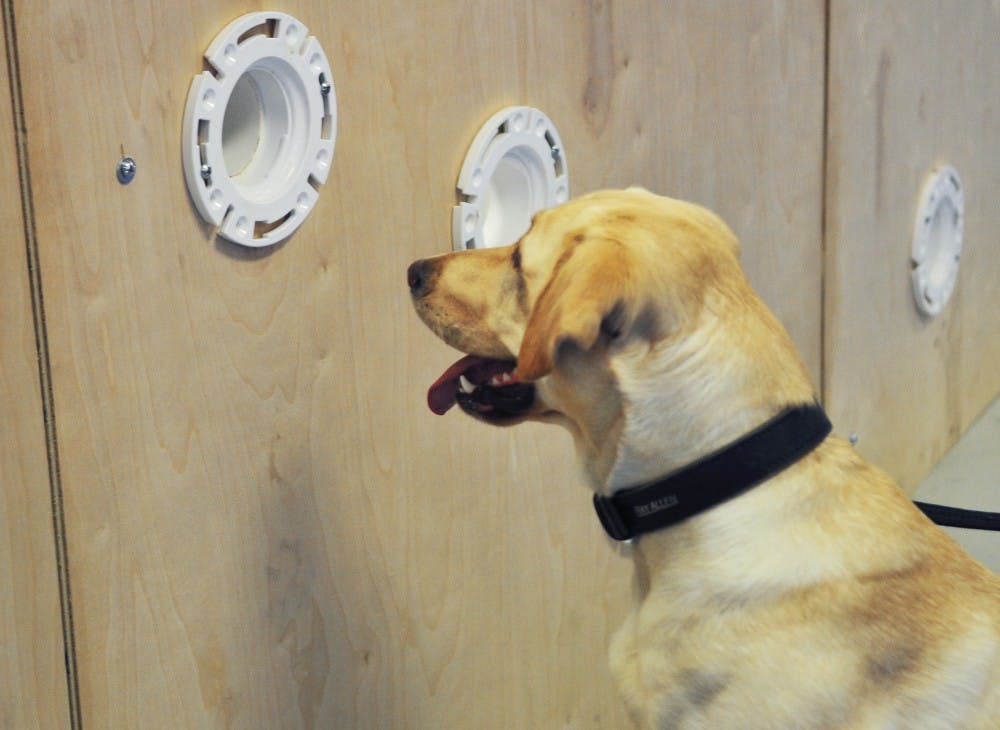
Penn Vet’s Working Dog Center announced a new partnership with the Department of Homeland Security on Monday.
The center will continue the Transportation and Security Administration’s explosive detection canine breeding program, which was shut down between the end of 2012 and the beginning of 2013 due to budget concerns. Penn Vet’s focus will be on scientific research rather than on field work.
Rather than completely ending the program and losing 10 years of research, the TSA gave existing canine research programs the opportunity to apply for a cooperative research and development agreement to allow for the continuation of current work, according to Working Dog Center Executive Director Cindy Otto.
The Working Dog Center will receive two new dogs and six more will go to a breeding facility in Texas under Director of the International Canine Semen Bank James Bell. The dogs are all adult female Labrador Retrievers bred through the bank.
Because the TSA dogs were all selectively bred through the semen bank, genetics can be controlled for, which means that the Working Dog Center researchers can study the influence of environmental factors. An important focus of their research, conducted by geneticists, is to collect data and advance the science in order to help others breed dogs with maximum success.
“By including the dogs from the TSA program, we’ve put ourselves 10 years ahead in selecting dogs,” Otto said. “We’re really able to advance our program.”
At the Working Dog Center, a training team uses standardized testing to evaluate the dogs on tasks such as looking for a toy and bringing it back. Historically, the TSA program has raised the dogs through foster home programs without daily intense training.
“No matter who’s got the dogs right now, about every three months, they get an examination,” Otto said. “If we’re seeing differences in the dogs, we have to ask: Is that genetics or is that because of the environment?”
The center aims to investigate the extent to which training can supplement a strong genetic background. “The genetics is huge because that’s what enables the next generation,” Otto said. "[That’s what] really sets us up for success.”
Many Penn students know Officer Socks, a bomb detection dog raised and trained through the Working Dog Center and now employed by Penn Police. Otto sees a lot of potential in Socks. She will be bred, possibly using the TSA semen bank.
Penn Police will also eventually receive Zisa, one of the two TSA dogs. Zisa is currently pregnant in Texas. The dog will arrive on campus sometime in May or June.
The TSA was not immediately available for comment.
The Daily Pennsylvanian is an independent, student-run newspaper. Please consider making a donation to support the coverage that shapes the University. Your generosity ensures a future of strong journalism at Penn.
DonatePlease note All comments are eligible for publication in The Daily Pennsylvanian.





